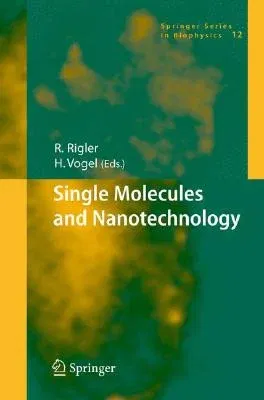The investigation of molecules as individuals has grown rapidly in
recent years, and in the process has uncovered molecular properties not
normally accessible by ensemble experiments. In particular, the direct
characterization of biologically important molecules such as enzymes,
molecular motors, or receptors and entire signaling complexes in action,
for example in a live biological cell, yielded un- pected insights.
Common approaches for studying single molecules include the electrical
detection of ion channels in membranes, the measurement of the dynamics
of (bio)chemical reactions between individual molecules, the imaging of
individual molecules by scanning probe techniques or by fluorescence
correlation spectr- copy, and the direct monitoring of single molecules
by optical microscopies, to mention a few. The application of these
techniques in physics, chemistry, and bi- ogy has opened new areas of
nanotechnology. This book provides a representative selection of recent
developments in the rapidly evolving field of single molecule techniques
of importance in life sciences and will have future impact on the quan-
tative description of biological processes. The editors of this book
hope that the chapters, written by leading scientists in the field, will
attract students and scientists from different disciplines, provide them
with an authentic insight into this young field of research, allow them
to evaluate experimental methods and results, and thereby give them
support for their own research. Lausanne Rudolf Rigler September 2007
Horst Vogel v Contents 1 Nanophotonics and Single Molecules. . . . . . .
. . . . . . . . . . . . . . . . . . . . . 1 W. E. Moerner, P. James
Schuck, David P.

